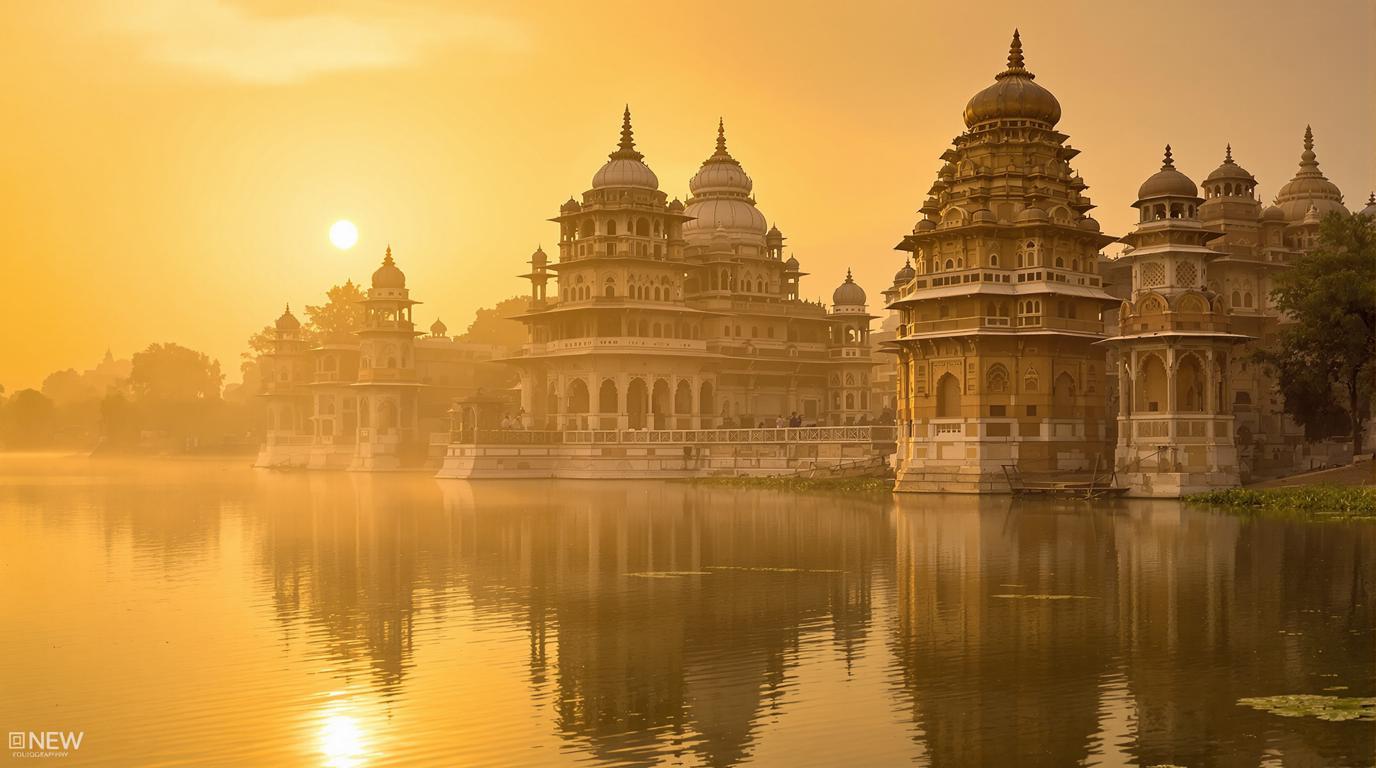I woke to the murmur of centuries-old stone whispering secrets across the Betwa River’s misty waters. Standing on the weathered balcony of my riverside guesthouse, the golden light of dawn gradually revealed Orchha’s skyline—a forgotten medieval tableau of soaring spires, bulbous domes, and weathered cenotaphs. Unlike its famous cousins Jaipur and Varanasi, this former Bundela kingdom in central India remains gloriously untrammeled, its 16th-century treasures hiding in plain sight.
Where medieval royalty whispers through crumbling corridors
Founded in 1501, Orchha grew from a small settlement into a powerful medieval capital whose architecture boldly merged robust Bundela aesthetics with delicate Mughal influences. What makes this town extraordinary isn’t just its preservation but its remarkable absence of crowds. As local guide Vikram Sharma told me, “In Orchha, the past doesn’t perform for tourists—it simply continues to exist, waiting for those curious enough to listen.”
While the town’s renowned palaces warrant exploration, Orchha’s true essence resides in the unexpected corners where history feels tangibly present, much like medieval French pilgrimage towns that have preserved their historical character against the tide of modernization.
Discovering sanctuaries of forgotten splendor
The palace where a god became king
Away from the imposing Jahangir Mahal that dominates most itineraries lies the unassuming Ram Raja Temple. What appears to be a modest palace from outside harbors an extraordinary story—the only place in India where Lord Rama is worshipped not as a deity but as a former king who once ruled from this very structure. I arrived at dusk as uniformed guards performed a royal salute, continuing a ritual unchanged for centuries. The temple’s unusual architectural fusion reflects its unique history, similar to 16th-century architectural treasures that house centuries-old collections of cultural significance.
Riverside whispers at the forgotten cenotaphs
Before sunrise, I followed a narrow dirt path beyond the main monuments to reach Orchha’s chhatris—14 towering cenotaphs honoring Bundela rulers—standing in magnificent isolation beside the Betwa River. In the dawn light, these multi-tiered memorials cast rippling reflections on the water’s surface. A local farmer crossing the nearby footbridge paused beside me, gesturing toward elaborate carvings almost hidden in shadow. “These kings built their tombs to catch the first light of morning,” he explained. “Even in death, they wanted the best view in Orchha.”
Savoring flavors preserved through centuries
The culinary heart of Orchha beats in the modest homes lining the narrow streets behind the temples. Following the scent of roasting spices, I discovered Lakshmi’s kitchen, where three generations of women prepared traditional Bundeli thali. The centerpiece was daal bafla—wheat dumplings twice-cooked in ghee served with spiced lentils and a cooling yogurt raita. Lakshmi explained that during Orchha’s royal era, this hearty dish sustained workers constructing the very monuments I’d spent days admiring.
Navigating the forgotten kingdom like a local
Perfect timing for solitary exploration
Visit the main palace complex after 3pm when day-trippers from Khajuraho have departed. The late afternoon light creates dramatic shadows across the intricate stonework while providing cooler temperatures for exploration. Return to the riverside cenotaphs at sunrise for uninterrupted photography and contemplation.
Accommodations with historical perspective
Bypass the larger riverside resorts for guesthouses in the old town. Bundela Haveli, a restored merchant’s home, offers simple rooms with traditional jharokha balconies overlooking the temple complex. From the rooftop, the evening aarti ceremony’s bells and chants create a mesmerizing soundtrack to sunset views across the royal complex.
Reflections on a kingdom that time forgot
As twilight descended on my final evening, I sat beside the Betwa River watching lamp-lit paper boats drift downstream—offerings from the evening temple ceremony. Orchha exists in a rare liminal space where past and present coexist without the barriers of velvet ropes or interpretive signage. In this forgotten medieval capital, history isn’t preserved under glass but lives and breathes through its stones, continuing traditions, and the unhurried rhythm of a place that flourishes precisely because the world has largely passed it by.
